
As Seen on BBC News!
Perhaps someone at the BBC thought a mid-week feel-good story was just the ticket at a time of global misery. Perhaps they thought a rags to riches, pull yourself up by the bootstraps tale would be heart-warming motivation to get us through a bleak midwinter Wednesday in lockdown. How and why that story was spun, is more interesting than the tall tale itself.
The BBC front page led with the interesting story of Ben Gulliver. A 20-year-old ‘entrepreneur’, Ben started his business during a period of furlough at the beginning of 2020. The enterprising young business owner became an overnight success, buying and selling high-demand products during the crisis to earn a claimed £12,000 a day at its peak.
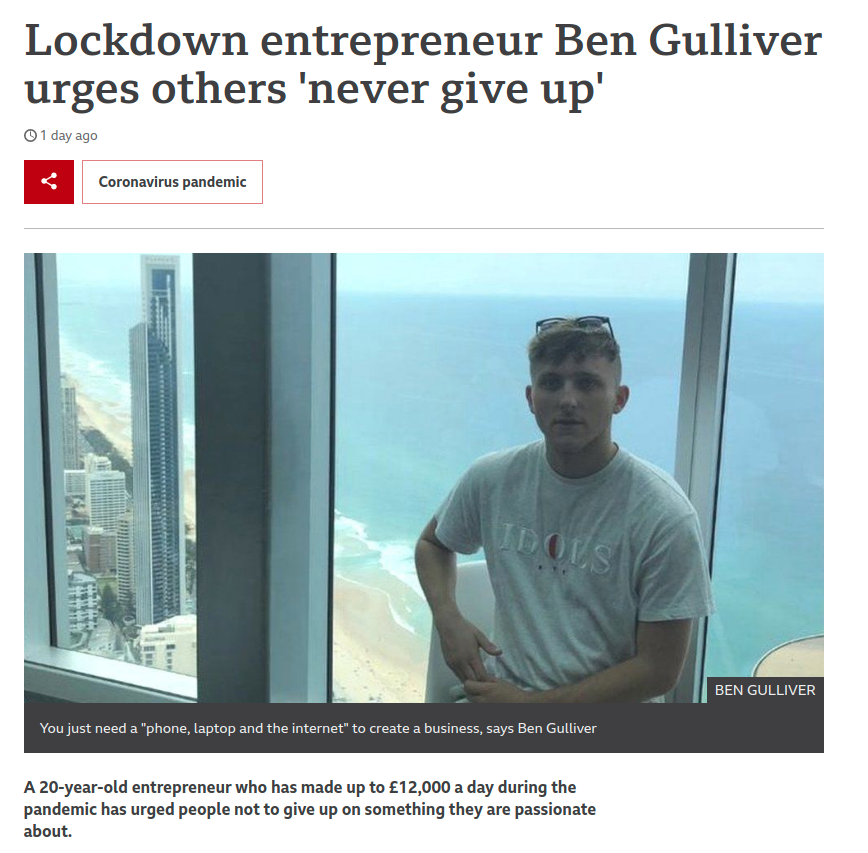
According to the article, Ben sold teeth cleaning products, gym equipment, DIY products, and coffee cups before selling the business to an American investor for an undisclosed 6-figure sum. Despite a comprehensive interview, a detailed description of Ben’s success, and a rundown of the impressive sums on display — there are some facts, figures, and basic due diligence omitted from the BBC piece.
To start with, the entrepreneurial path described is so well-trodden it has a name—drop shipping. A useful tool to grow businesses and serve customers in an economical way, it’s also a tool that could, in certain cases, be used in an unethical way.
Drop Shipping

In a nutshell: a drop shipping business runs an online storefront which acts as a middleman between suppliers and customers. The company may never take possession of the product, while the supplier may never directly interact with the customer. If you’re expanding your business either by scale or product line and don’t wish to invest heavily in excess inventory, staff, or storage space — it’s an ideal match.
Customer orders are passed directly through the website to the supplier who ships the product directly out to the customer’s address. There’s nothing inherently scam-like about the practice. It’s a useful tool used routinely by most businesses at a certain scale.
It is, however, a practice which comes with a certain degree of responsible ownership. Like any other, it’s open to some severe abuse.
Companies have a legal duty to ensure their products are safe, of reasonable quality, and meet regulations in the country they’re sold in. As the company that sells the product to the consumer, it’s your responsibility to act as customer service, deal with refunds and support, and generally act as the public face for the products being sold. Today, that doesn’t always happen.
Businesses now regularly ship cheap products from China at ludicrous profit margins without legitimate certification or quality control. Online marketplaces are now rife with burning chargers and exploding batteries that have come from dubious suppliers.
Lucky Teeth
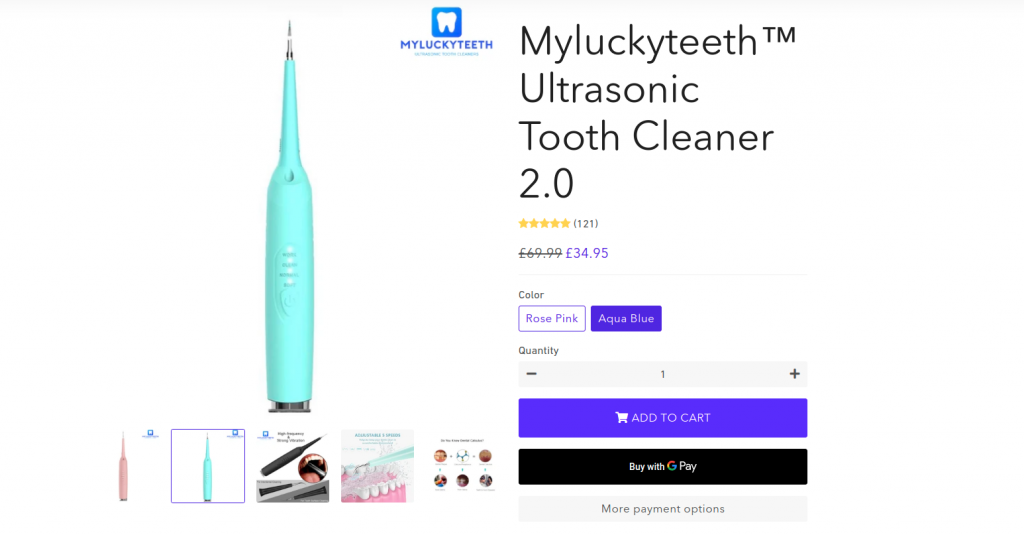
A brief look online shows Ben’s lockdown company traded then as myluckyteeth ltd. Amongst the half-dozen or so products, their flagship device appears to be the MyLuckyteeth(TM) Ultrasonic Tooth Cleaner 2.0 on sale for a “discounted” £34.95.

The product itself boasts 121 5-star reviews on the site. The listing includes ‘as seen in’ Vogue, GQ, and Buzzfeed as its many merits. Encouraging users to get a ‘dentist approved smile’ beside some miracle transformation before and after images, the cutting-edge device—available in two colours—makes an ambitious sales pitch from the off.
It’s here, with the bare minimum of due diligence, the story switches gear from the feel-good tale as advertised. A quick look at Trustpilot shows the big splash the company claims to be making in lockdown sales is—a little less than impressive.
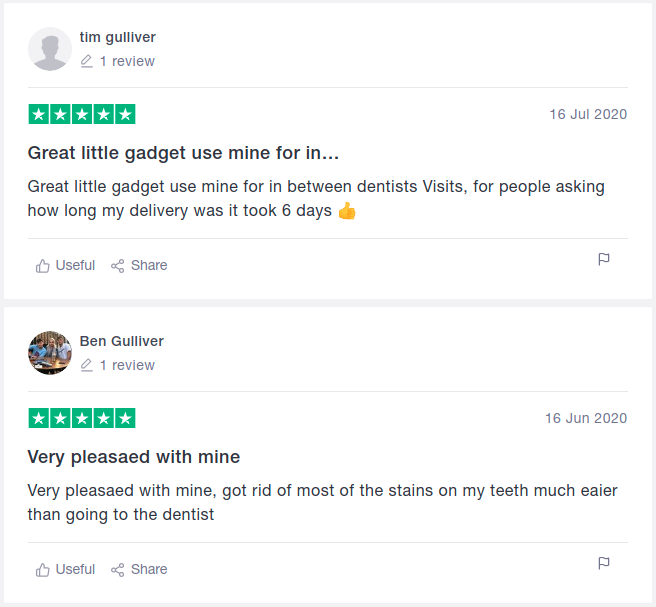
Of it’s 4,000 claimed average monthly sales “Myluyckyteeth(TM)” (there’s no evidence of a registered trademark online) the company has racked up a grand total of 22 reviews. Of these, 6 are extremely positive 5-star awards written by undisguised pseudonyms Ben and Tim Gulliver. The remaining 16 are made up entirely of scathing 1-star reviews.
https://uk.trustpilot.com/review/myluckyteeth.com
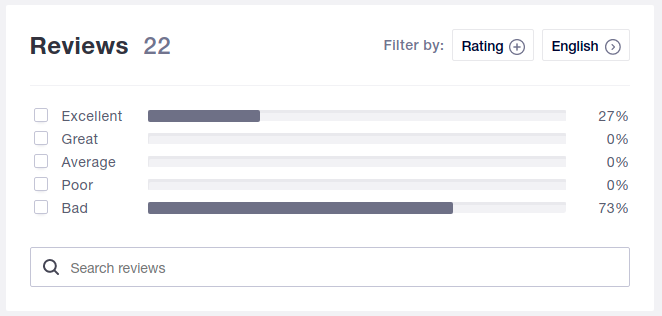
More than a handful of reviews directly use the word scam. Several mention a complete absence of customer service and being denied a refund despite the company proudly stated ’30 day money-back guarantee on the homepage. Almost all describe the product itself as cheap, awful, and ‘not as advertised.’
Likely Origins
A quick look on Amazon shows the same and similar products being sold to consumers for £9-14 by similar entrepreneurs. AliExpress has the same product at £4-£8 plus shipping. With such impressive profit margins, it’s a wonder the company haven’t invested more resource into their customer services. It may benefit the remaining ‘3,984’ they’re selling every month.
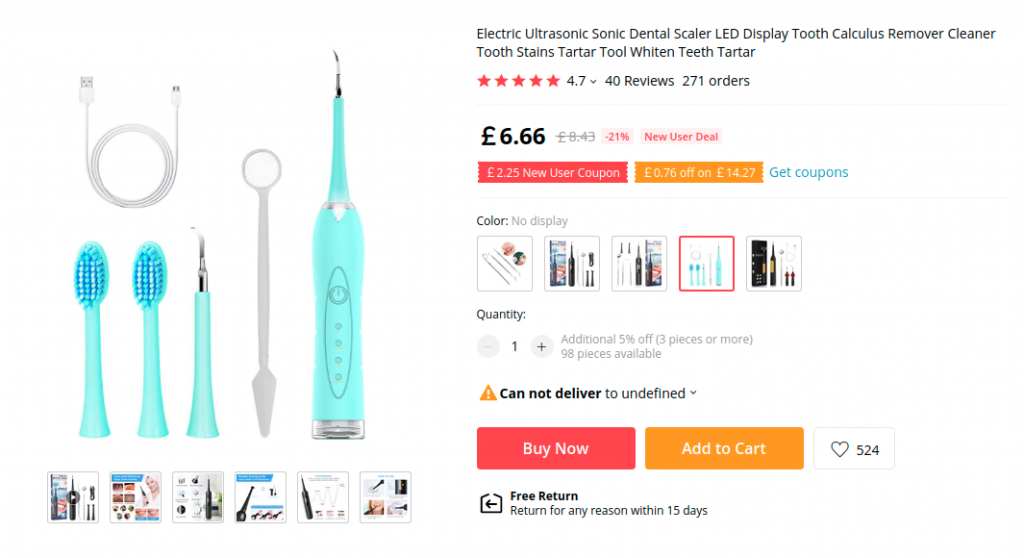
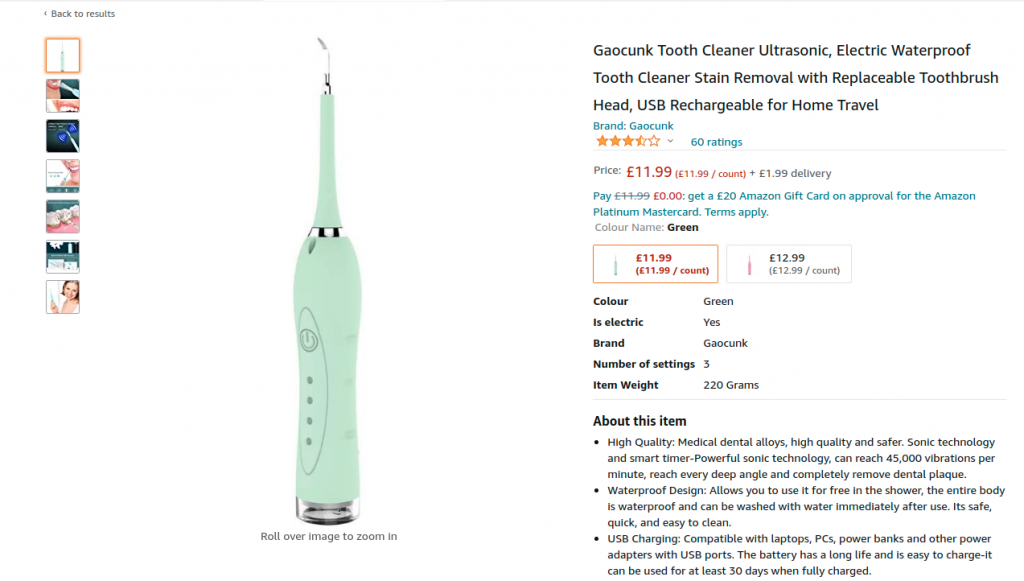
None of the facts about the company or the nature of the product are particularly surprising. Purchasing products from an unknown and untrusted website on the internet should come with a very strong ‘buyer beware’ warning. Similar scams are a dime a dozen online. A brief look through Trustpilot will turn up many similar examples of the breed. None of these, however, are being promoted on the front page of the BBC.
Yet, it’s far from the first time scam artists have exploited the corporation’s naive see nothing say nothing approach. This isn’t even the first time in the past 12 months.
The BBC production department was forced to pull an episode of a BBC Three series ‘Young, Welsh, and pretty Minted’ in February last year. It transpired after airing that the young ‘investor’ featured on the show was little more than an aspiring con-man. Forced to pull the show from its online streaming service, it’s one more example of the corporation failing to do sufficient due diligence.
End Goal
The career path these young ‘business-minded’ folk are pursuing is genuinely as creative as the one the BBC does give them credit for. It’s just not exactly the one they think.
It’s safe to predict, in the next 2-3 months, the young entrepreneur behind myluckyteeth ltd will have a new range of products out. Instead of drop shipping ‘highly lucrative’ products, the new line will be a range of online courses and materials. The common theme between the two is that they too will both be aimed at naive punters.
Only, these people will be less gullible than the first. This new line of course materials will have impressive headlines such as ‘featured on the BBC!’, and ‘as seen on BBC news’ to pull them in and separate them from their hard-earned cash.
You can hardly blame the news editors for looking for a good news story to fill their pages in such a torrid time. Perhaps it would have been more agreeable had they done the groundwork to go with it too. Perhaps, they might have looked as well at the stories that it was built on. The stories of dozens of people duped out of £30-£40 at a time when income is scarce and cash increasingly hard to come by.
While people might not be expected to know better, the BBC can and really, really should.
One thought on “As Seen on BBC News!”
Great write up, I wrote a review trying to warn people of this and highlight the BBC article wrongly praising him https://www.trustpilot.com/reviews/600a5a0a755dc109e8e1f80a
Shame on the BBC for giving this guy credit, really is journalism at its worst!